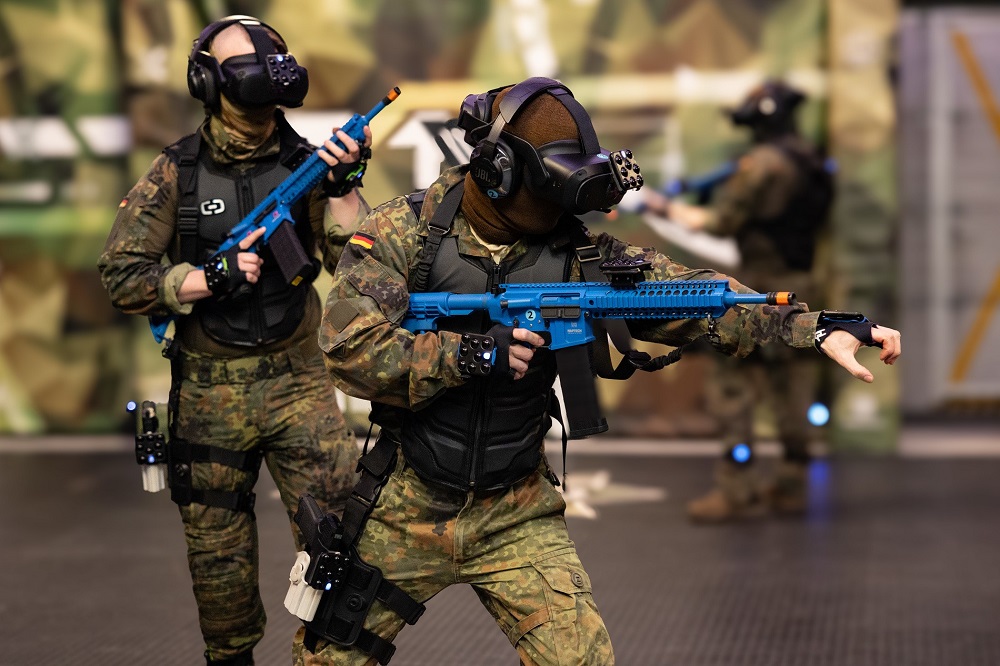HOLOGATE, through its training and simulation division HGXR, has announced a groundbreaking four-year collaboration with the German Army. Partnering with the Wehrtechnische Dienststelle 91 (WTD 91), this initiative aims to revolutionise XR training by integrating advanced artificial intelligence (AI) technologies, including the development of stand-alone AI modules to support service personnel in the field. Through the innovative use of AI technologies, this collaboration seeks to enhance training efficiency, realism, and human resource optimisation. Over the next four years, HGXR will use its expertise to integrate AI-driven solutions for the various aspects of military training to create a holistic, realistic training experience. The focus will be on the implementation and use of advanced behaviours from Non-Player Characters (NPC) and Large Language Models (LLM). In the future, AI will control complex action sequences, generate dynamic training scenarios and realistically represent conversation facilitation with NPCs via AI chatbots. In addition, AI will be used to simulate coordinated group behaviour, making training scenarios possible that were previously difficult to represent – and in a resource-efficient manner.
Leif Petersen, CEO of HOLOGATE, is enthusiastic about the future: “The renewed cooperation with the German Army is a significant milestone. The integration of AI enables us not only to create realistic and immersive XR training scenarios, but also to develop stand-alone, interoperable solutions that are greatly beneficial to service personnel in their professional lives. This strategic partnership is an essential step towards an efficient and sustainable training experience that fully utilises modern technology.”

The project will be continuously evaluated through user feedback and expert workshops to ensure that the AI-driven training modules are in line with the training objectives. This iterative process will help refine and optimise AI capabilities to meet requirements. The most important aspects of the project include
• Development of an AI behavior editor for the creation and management of NPC actions
• Introduction of situational AI-supported facial expressions and gestures
• Combining of scripted and AI-driven behaviors for a comprehensive training experience
• Analysis and integration of LLM for communication with NPCs
• Conversation with NPCs via AI chatbots, including the handling of dynamic threat scenarios, such as dealing with suicide bombers on a verbal and non-verbal level
This innovative technology is not only being developed for military use but will also be used in police and security training in the future. The aim is to create truly interactive AI modules that can adapt to different training needs and scenarios to ensure continuous improvement and adaptation to the training objectives of the military, police and security forces. The project’s final stage will see the development of AI modules that can also operate independently of the virtual action trainer. These autonomous solutions are intended to support soldiers in their operational tasks and in training, for example by helping them to make decisions or providing situation assessments during deployment. Additionally, logistical and resource-intensive processes can also be optimised in the future thanks to AI. The potential applications of this technology are far-reaching and varied.















